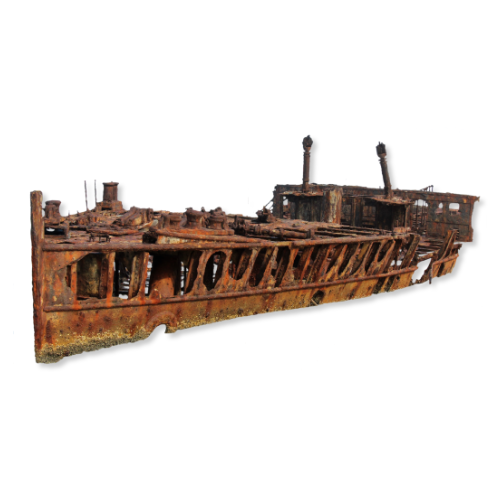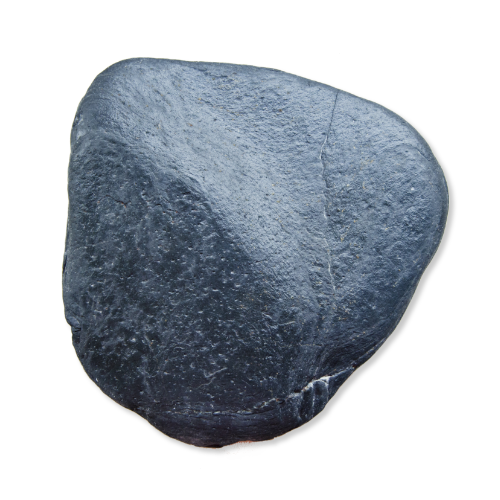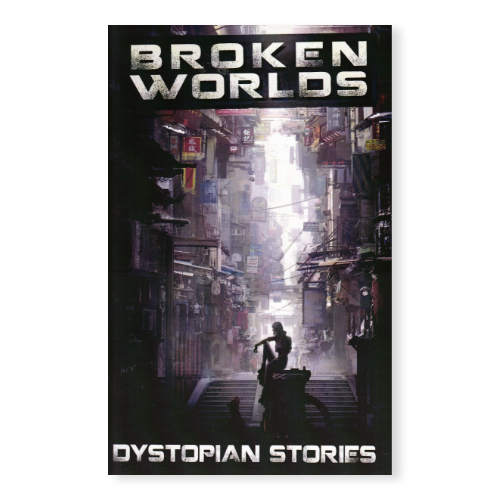
Urbanova
SHORT STORY
Finding themselves in the wastelands of Southern Spain after an unknown disaster, a mother and daughter drive along the coastal road, tracking a shipping container in the hope it contains food. Little do they realise what they will discover when it finally washes ashore.


OPENING
At the top of the only hill for miles, the car circumnavigated a palm-lined roundabout and then spluttered to a halt, creaking in thought as to whether it would roll back down the slope behind us or manage to inch over the crest and freewheel down the other side.
One palm looked healthy and unscathed. It shone out as a green beacon among the splintered and scorched others.
I sighed in harmony with the steaming radiator and sunk back into the seat in submission.
“Come on, Mummy,” said Abigail, “We can rock it again.”
Her enthusiasm pulled me over the edge of defeat and we began throwing ourselves forwards in shouting lurches, gently back, and then forwards again; we were exhausted rowers without an oar between us.
The door clicked open and I leant out a foot to help push the car forwards.
“No, Mummy,” said Abigail. “Shut the door.”
“The ground is safe,” I said.
“Please.”
I shut the door.
“We can do it just by rocking,” she said.
It felt easier following the directions of a seven-year-old girl rather than having to decide what was best to do. To assume that I knew any better than her would have been huge arrogance on my part. At least I still knew how to be a mother.
We rocked harder, screamed louder and the car began to tread tarmac. We almost rolled full circle back round the roundabout, so I yanked the steering wheel to take us off the exit that looked as if it pointed towards the sea.
The curve of the road was gentle enough, but the hill was getting steeper and I was struggling with the weight of the wheel without power steering. I fought the urge to apply the brake, desperate to squeeze every last inch of journey out of the dead car.
Most of the vehicles from the area had either vanished along with their owners or were left neatly parked in place, but burnt out, like the owners neatly parked in the remains of their nearby beds.
A blur of pastel-tinted holiday apartments swished past the window as we gained speed. Towards the bottom of the hill the road curved left to join into the main flow of traffic along the sea front.
Between the carcasses of buildings, flashes of azure sea flowed into a single stream like a zoetrope.
“I can see the sea!” shouted Abigail.
“You keep looking then,” I said. “I need to keep watching this road.”
“I don’t see the box anymore.”
“It might be way ahead by now or gone out too far.”
The black-ribbed carcass of a van straddled a traffic island where the two lanes merged at the foot of the hill, its gaping doors still waiting in hungry anticipation for the ashes of boxes stacked nearby.
A deep breath loaded the news into my mouth. “Abi, get ready because we’re going to hit the van.”
“No, steer!” she screamed. “Go around!”
“Don’t panic, sweetheart. If we try to go round we’ll hit the railings or end up on the beach. The van will help us turn onto the road.”
“Stop the car! Press the brake.”
Pressing the brake pedal produced a lot of noise, but the car was accelerating ever faster.
I ignored her pleading. “Just bend forward and put your head between your knees.”
A vision of the foot wells crumpling on impact. “No, sit right back in your seat with your hands round your head… and go floppy.”
“I can’t hold my hands up and go floppy.”
“Just do it, honey.”
The two vehicles boomed like thunderclouds as they hit. The car lifted slightly on its wheels, but the van’s side caved in and spun the car off at a new angle. I let go of all delusions that I had any control or influence over the vehicle at all. We were sitting in a metal box on wheels hurtling along very hard ground.
Abigail was screaming
The buckled tyres found the dividing kerb down the centre of the road and the car jolted parallel. Even once we were rolling straight and I felt the grip of control stiffen within my hands, the drunken wheels limped us through an invisible slalom course.
Up ahead, the road turned left at ninety degrees, back inland. Beyond the turn rose billowing ranks of tall sand dunes. I was thinking through how to word another warning to Abigail about a possible second impact, but my words were not needed. On the flat road, the jellied wheels lost momentum and the car rolled to a halt.
Having cried out for the car to stop, Abigail feared the inevitable now our wheeled sanctuary was motionless.
“Did you brake?” she whispered.
Still staring through the windshield, I shook my head.
“If we leave it again, for maybe an hour, it might start again.”
“This car isn’t going to move again, honey,” I told her.
“But we could wait and see… just in case… like before.”
“We have to get out now.”
“How do we know it’s safe?”
I shrugged. “We don’t, but we can’t sit in this car forever.”
Outside, holiday apartments lined each side of the street. Some looked intact, others were black and crumbling like giant decaying teeth. A gentle breeze wafted a range of smells past us, some rancid and rotten, others sweet like cooked food. I did not fancy investigating any of them.

PUBLISHED IN

- Paperback: 310 pages
- Publication Date: 13 Dec. 2014
- Publisher: Almond Press
- ISBN-10: 099365715X
- ISBN-13: 978-0993657153
WORDPLAY WRITERS SHOWCASE
In a future of bleakness and roboticism, a totalitarian government enforces upon the people a lifestyle that lulls them into a state of obedience. Your career and social status are predestined and you cannot alter it – this is a reality that walks a fine line between evoking sensations of fear and inducing a sense of futility.
A dystopian reality can sometimes turn out to be as powerful and strong as it can be fragile, collapsing in on itself from one second to the next. As a race, we are fascinated with what comes next, what’s over the hill and, inevitably, what happens if we’re left all alone. How can things go on? What lessons can we learn?
Broken Worlds takes a peep into an all too possible future. Narration and style change from story to story, but the core of this volume is human emotion. Coloured by their cultures and backgrounds, the storytellers featured in this volume take the idea of a society at extremes and weave a variety of outcomes.
We invite you to read and hope you enjoy this collection.









